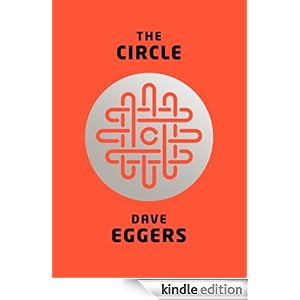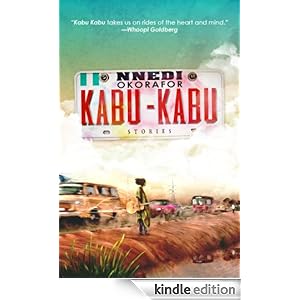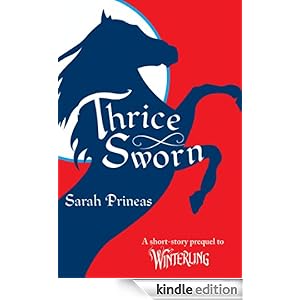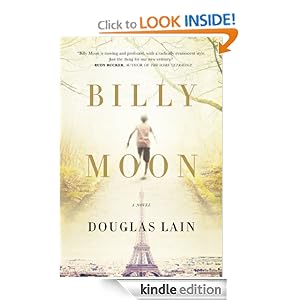Boundless Physics textbook is a college-level, introductory textbook
Cobweb Bride (Cobweb Bride Trilogy) by Vera Nazarian
Lore of Rainbow by Vera Nazarian
Slaughterhouse-Five by Kurt Vonnegut $.99

APB-SAL is a blog about education, science, science education, fiction, science fiction, literature, literary stories, poetry, and anything else that strikes the blogger's fancy. NOTE: This blog interrogates art. It rarely make moral proclamations. For that attend the church or politician of your choice. This blog concerns aesthetics, not propaganda. Consider this as interviews with books where the interviewer presents interviewees, so you get what you need to do your own thinking.
Thursday, October 31, 2013
Free Halloween stories
Ebook includes Brian Keene, Jonathan Maberry, Scott Nicholson, and Bryan Smith
Wednesday, October 30, 2013
20 Things You Should Never Say To Teachers
9 Things You Should Never Say To Teachers
The first plays more with humor. I somehow doubt these will stop silly questions people ask teachers.
9 Things You Should Never Say To Teachers
The first plays more with humor. I somehow doubt these will stop silly questions people ask teachers.
Free and reduced ebook lunches
Monday, October 28, 2013
Opining on Education: What's Good, What's Not, Ways to Make it Better
James Van Pelt on why education is the same or better than ever.
A husband who's happy his wife is leaving education. (News Observer)
Why Do Teachers Quit? And why do they stay? (The Atlantic)
"[V]ery little has changed with our kids.... I often hear older folks complain that the kids when they were in school were different. They were more respectful. They studied harder. They were in every way 'better.'
"I just don’t believe it."
A husband who's happy his wife is leaving education. (News Observer)
"[S]he is free to live her life unburdened by the oppressive hands of incompetent legislators and school board members who wish to micromanage education."
Why Do Teachers Quit? And why do they stay? (The Atlantic)
"[B]etween 40 and 50 percent of teachers will leave the classroom within their first five years (that includes the nine and a half percent that leave before the end of their first year).... four percent higher than other professions."
"It’s... lack of respect.... Teachers... do not call the shots. They have very little say. They’re told what to do; it’s a very disempowered line of work.”
“We are held up to a really high standard for everything.... It stems from this sense that teachers aren’t real people, and the only thing that came close to [making me stay] was the kids.”
“When you’re in your early 60s and you’re still coming home with 65 hours of grading over two weeks…that’s very overwhelming. [But] I love working with teenagers. I love the relationships and I love being able to help them.”
"...all the teachers I speak with... cared for their students deeply, but .... the workload, the emotional toll, the low pay—was just too much."
"...schools that do a far better job of managing and coping with and responding to student behavioral issues have far better teacher retention.”
"beginning teacher support[:] teachers who have... two small initiatives... (working with a mentor and having regular supportive communication with an administrator) are more likely to stay in the classroom.... Parental engagement and high student achievement are key factors."
Sunday, October 27, 2013
Just in time for Halloween
Free Billie Sue Mosiman ebook--short story
Free ebook magazine--Lamplight
Halloween prank I'm not sure if it's funny or cruel:
Free ebook magazine--Lamplight
Halloween prank I'm not sure if it's funny or cruel:
Saturday, October 26, 2013
Friday, October 25, 2013
Wednesday, October 23, 2013
Free pdf ebook sampler of Robert Heinlein
Free ebook
Includes
Includes
- advice to Larry Niven and Jerry Pournelle concerning The Mote in God's Eye
- other letters
- essays
- the short-story classic, perhaps greatest time-travel story ever written, "All You Zombies"
Analysis of "The Menace from Earth" by Robert A. Heinlein
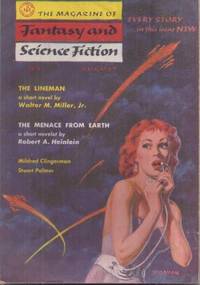 This first appeared in The Magazine of Fantasy and Science Fiction, reprinted by Isaac Asimov, Georgess McHargue, Eric Flint, Jim Baen, David Drake. Available online. It is also available in a double-collection ebook (pictured below).
This first appeared in The Magazine of Fantasy and Science Fiction, reprinted by Isaac Asimov, Georgess McHargue, Eric Flint, Jim Baen, David Drake. Available online. It is also available in a double-collection ebook (pictured below).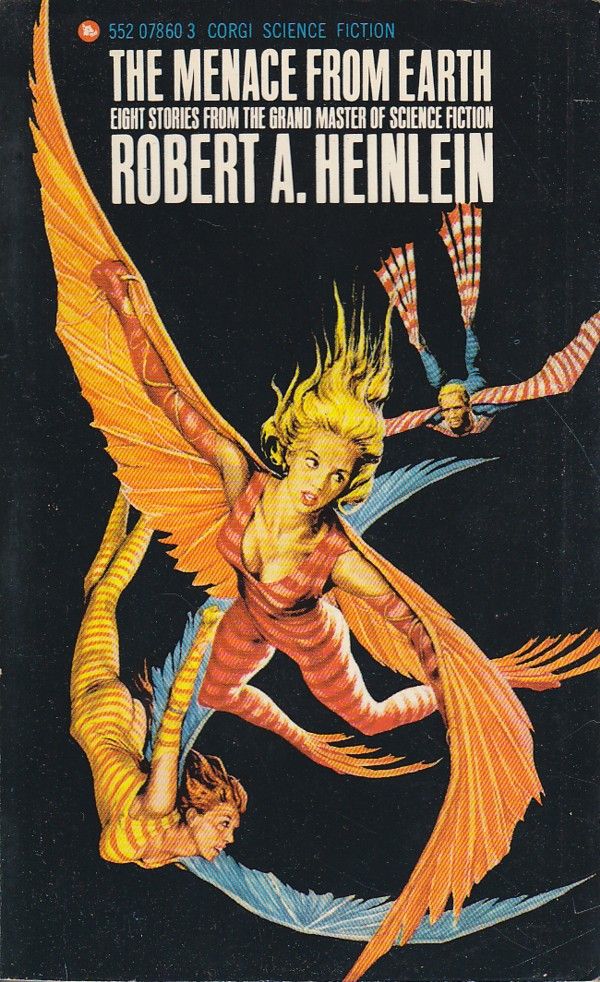
An effective love story: Interesting structurally, it opens with an admirably executed unacknowledged jealousy, makes an uneasy peace with it, shows the other side of jealousy, and walks away from the love story before returning. This may be more of a guy's style of love story, but it would be interesting to hear what women thought of it.
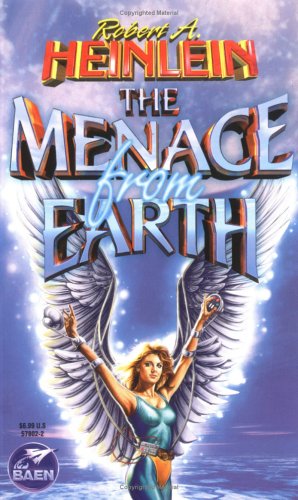
 Fifteen-year-old Holly Jones envisions herself a business woman who wants to build starships with her friend and partner, Jeff Hardesty. Meanwhile, she picks up work as a tourist guide for the predictable "ground hogs" or Earthlings. When she hands over the tourist, she learns that Jeff is infatuated. She's disappointed, but frames this only as it impacts their business relationship. The reader and other characters see it differently.
Fifteen-year-old Holly Jones envisions herself a business woman who wants to build starships with her friend and partner, Jeff Hardesty. Meanwhile, she picks up work as a tourist guide for the predictable "ground hogs" or Earthlings. When she hands over the tourist, she learns that Jeff is infatuated. She's disappointed, but frames this only as it impacts their business relationship. The reader and other characters see it differently.Jeff finally returns to Holly--they exchange affectionate if slightly demeaning apellations--but only to have her teach her own rival to fly. This would seem the ultimate slap in the face, but Holly takes it well, accepting the job.

However, the job goes awry and Holly has to save her rival's life. After everything, the rival has to point out what's been obvious to everyone else. However, charmingly, Holly accepts Jeff's love only framing it as it will help out their business relationship.
Her disarming sacrifice here becomes a true sacrifice in the next tale, "Sky Lift", with the consequence of life and intellect lost. It is the latter we readers mourn the most. Next to "Columbus Was a Dope", we have a pair of pro-exploration tales--in life and in space.
Tuesday, October 22, 2013
Analysis of "Columbus Was a Dope" by Robert A. Heinlein
 First appeared in Startling Stories, reprinted by Isaac Asimov, Groff Conklin, Frederik Pohl, Carol Pohl, Peter Haining, Martin Greenberg.
First appeared in Startling Stories, reprinted by Isaac Asimov, Groff Conklin, Frederik Pohl, Carol Pohl, Peter Haining, Martin Greenberg.A short tale with an effective gut-punch for a finale.
At a bar, Barnes, a "fat man" who drinks old-fashioneds, harangues a starship builder for this hair-brained multi-generational scheme, doomed to fail. Heinlein gives him a convincing if sketchy argument (it could have used a few more supporting details). He suggests Columbus was a dope for leaving home.
 The bartender says the world needs explorers--naysayers of Kitty Hawk are dragged out on the table as evidence for fools against progress--and (spoiler) the bartender's happy to live on the moon.
The bartender says the world needs explorers--naysayers of Kitty Hawk are dragged out on the table as evidence for fools against progress--and (spoiler) the bartender's happy to live on the moon.Fools against progress have been numerous throughout history, and the story does a fine job convincing the reader of the desire if not the necessity of humanity's next steps.
The naysayer here is fat--perhaps too easy a target--but the old-fashioneds are a nice touch. Rubbing shoulders with "By His Bootstraps", the frictional energy might lead us to think the future presses on, with or without us. In "The Menace of Earth", more of the moon's technology is on display, making Barnes look more the fool in the reader's eyes. The title, like many stories here, are meant the opposite of what they say.
Lisa Tuttle on Spelling Things Out
--Lisa Tuttle, Writing Fantasy and Science Fiction"Sometimes explanations, delivered in simple, flat statements of fact, are required. Don't be afraid to spell things out when you have to."
Note: A solid book on the field. The unique strength or value of this book is its analyses. Her advice is familiar but when she breaks down her work or those of others, you'll want to listen.
Monday, October 21, 2013
Analysis of "By His Bootstraps" by Robert A. Heinlein
This first appeared in Astounding, reprinted a dozen times or so by many famous editors in their day: Kingsley Amis, Brian W. Aldiss, Harry Harrison, Terry Carr, Robert Silverberg, Martin H. Greenberg, Robert Conquest, Raymond J. Healy, J. Francis McComas, Leo Margulies, Oscar J. Friend. It is available in a double-collection ebook (pictured below).
Too clever by half--but thank goodness for such cleverness. When I'd first read this, I'd already Heinlein's "All You Zombies," so I half of this was expected. I read it too hastily then. In fact, this has a lot of charm.
After locking himself alone in his apartment, Bob Wilson works on his doctoral thesis the night before it's due. He anticipates finishing. However, a familiar-looking stranger in the room tells him it's all hogwash. The stranger tries to convince Bob to go through the gate. Despite getting liquored up, Bob remains unconvinced until another stranger tries to stop him from going through. A fistfight ensues, and Bob plunges through the portal...

30,000 years into the future. And a lovely future it seems, with beautiful women aplenty, but before Bob can enjoy this new future, he must go back through the portal and convince the man on the other side to enter. The man on the other side--you guessed it--is himself from earlier. Here's where the charm comes: Bob (or Joe, as he now calls himself so as to confuse his first self) is annoyed with arrogant, stubborn self. Who of us has not been annoyed with ourselves? But what a zinger of self-recrimination.
The second return is repetitious, but thankfully shorter. Although the charm here is the new introspection:
Finally (or maybe not finally), Bob remains in the future to chase down this mysterious Diktor [Dictator? The books he retrieves--Mein Kampf and The Prince--suggest that this interpretation may be viable.] However, Diktor remains illusive
The title and conclusion may be ambiguous. "By His Bootstraps" alludes to pulling one's self up by one's bootstraps--i.e. your success depends only on you. One could say that Bob helps himself, on the one hand; on the other, he has the help of other individuals. The ending sounds clearly hopefully:
The key or the ending may come nearer to the beginning when Bob's girlfriend calls and natters to him about his proposal of marriage, which he rejects immediately, especially after he meets the exceptionally beautiful future women. But it sounds like the mature Bob returns for the present girlfriend as opposed to the mindless of the future. In fact, the future sounds like a kind of bland if grand and wonderful prison. Diktor's perspective does sound more mature toward the end of his time in the future, suggesting perhaps that we need to find ourselves before we are ready for the next step.
Heinlein introduces two impossible paradoxes, which he brushes off with a philosophical, "Which came first, the chicken or the egg?": How did the first self get to the future initially and who first taught him the language?
Interestingly, in the collection The Menace from Earth, this is paired with "The Year of a Jackpot"--a tale of Armageddon, which this tale alludes to as well, including the name of the woman who serves Bob in the future. Following this tale is "Columbus Was a Dope", a pro-exploration tale. The frictional energy this tale gains with that might be a comparison of explorer types: Some should stay home, some move on, some move on only because they were told they shouldn't. Sometimes you have to walk away from a thing to appreciate what you have (this also comes up in "The Menace from Earth").
Too clever by half--but thank goodness for such cleverness. When I'd first read this, I'd already Heinlein's "All You Zombies," so I half of this was expected. I read it too hastily then. In fact, this has a lot of charm.
After locking himself alone in his apartment, Bob Wilson works on his doctoral thesis the night before it's due. He anticipates finishing. However, a familiar-looking stranger in the room tells him it's all hogwash. The stranger tries to convince Bob to go through the gate. Despite getting liquored up, Bob remains unconvinced until another stranger tries to stop him from going through. A fistfight ensues, and Bob plunges through the portal...

30,000 years into the future. And a lovely future it seems, with beautiful women aplenty, but before Bob can enjoy this new future, he must go back through the portal and convince the man on the other side to enter. The man on the other side--you guessed it--is himself from earlier. Here's where the charm comes: Bob (or Joe, as he now calls himself so as to confuse his first self) is annoyed with arrogant, stubborn self. Who of us has not been annoyed with ourselves? But what a zinger of self-recrimination.
The second return is repetitious, but thankfully shorter. Although the charm here is the new introspection:
"His first response was the illogical but quite human and common feeling of look-what-you-made-me-do. 'Now you've done it!' he said angrily."Who had done it? Humans are quick to shift blame, but who's guilty?
Finally (or maybe not finally), Bob remains in the future to chase down this mysterious Diktor [Dictator? The books he retrieves--Mein Kampf and The Prince--suggest that this interpretation may be viable.] However, Diktor remains illusive
The title and conclusion may be ambiguous. "By His Bootstraps" alludes to pulling one's self up by one's bootstraps--i.e. your success depends only on you. One could say that Bob helps himself, on the one hand; on the other, he has the help of other individuals. The ending sounds clearly hopefully:
" 'There is a great future in store for you and me, my boy--a great future!'
"A great future."Why does the narrator (possibly we are in the mind of the protagonist) or author repeat the phrase, and why is it not as emphasized with an exclamation? It may be the narrator does not believe this.
The key or the ending may come nearer to the beginning when Bob's girlfriend calls and natters to him about his proposal of marriage, which he rejects immediately, especially after he meets the exceptionally beautiful future women. But it sounds like the mature Bob returns for the present girlfriend as opposed to the mindless of the future. In fact, the future sounds like a kind of bland if grand and wonderful prison. Diktor's perspective does sound more mature toward the end of his time in the future, suggesting perhaps that we need to find ourselves before we are ready for the next step.
Heinlein introduces two impossible paradoxes, which he brushes off with a philosophical, "Which came first, the chicken or the egg?": How did the first self get to the future initially and who first taught him the language?
Interestingly, in the collection The Menace from Earth, this is paired with "The Year of a Jackpot"--a tale of Armageddon, which this tale alludes to as well, including the name of the woman who serves Bob in the future. Following this tale is "Columbus Was a Dope", a pro-exploration tale. The frictional energy this tale gains with that might be a comparison of explorer types: Some should stay home, some move on, some move on only because they were told they shouldn't. Sometimes you have to walk away from a thing to appreciate what you have (this also comes up in "The Menace from Earth").
Lisa Tuttle on Detail and Reality
--Lisa Tuttle, Writing Fantasy and Science Fiction"Small, telling details can be enormously effective in giving the impression of a different reality."
Note: A solid book on the field. The unique strength or value of this book is its analyses. Her advice is familiar but when she breaks down her work or those of others, you'll want to listen.
Sunday, October 20, 2013
Analysis of "The Year of the Jackpot" by Robert A. Heinlein
 This first appeared in Galaxy, reprinted about a dozen times by several major editors of the 50s-70s: Frederik Pohl, H. L. Gold, Donald A. Wollheim, Damon Knight, Terry Carr, Robert Silverberg, Dick Allen, Lori Allen, James Frenkel. It is available in a double-collection ebook (pictured below) or as a single (pictured to the right). [Note: the cover illustration has nothing to do with the story.]
This first appeared in Galaxy, reprinted about a dozen times by several major editors of the 50s-70s: Frederik Pohl, H. L. Gold, Donald A. Wollheim, Damon Knight, Terry Carr, Robert Silverberg, Dick Allen, Lori Allen, James Frenkel. It is available in a double-collection ebook (pictured below) or as a single (pictured to the right). [Note: the cover illustration has nothing to do with the story.]
In the ebook of the same name, Paul Di Filippo astutely correlates this story to Heinlein's Future History timeline's "The Crazy Years" although the technological progress is minimal, the societal social fabric rips apart at the seams. Heinlein's remarks on the period are:
"Considerable technical advance during this period, accompanied by a gradual deterioration of mores, orientation and social institutions, terminating in mass psychoses in the sixth decade and the Interregnum.
"The Interregnum was followed by a period of reconstruction."
Interestingly, although Heinlein is maligned for how he handles social mores (comparing him to contemporary mores rather than the common mores of his day), he constantly breaks the rules even when he seems to be flaunting a more conservative perspective. Nailing Heinlein's social perspective is problematic as, at his characters' most staunch perspective, it often appears under the guise of banter. If one were to summarize his socio-political perspective, it might be "Let it go" or "Take it easy,"* a phrase from the tale itself, to either political persuasion. Let people be whoever they want to be.

Potiphar Breen is a statistician who has been anticipating human cycles of insanity, "lemming"-like suicidal behavior among the human species. Social mores are being shed, just as literally as Meade, a young woman, sheds her clothes in public but has no understanding of why she's doing it. Potiphar happens to have a raincoat on him to put around her just as the cop had intended to arrest her. The tale suggests, but does not say, that Potiphar had statistically anticipated someone stripping there. To Potiphar, she's an interesting statistic. He wants to know why she does, but she has no inkling.
He anticipated a complete breakdown of humanity before it recollects its insanity. When both lose their jobs and the insanity reaches a peak--just as strange earthquakes, weather, and nuclear weapons strike--they high-tail it out of Los Angeles. None to soon.
They make it to a rural area to wait out humanity's inhumanity. Just as it looks better for humanity. Disaster from the sun strikes. I didn't make much of the ending--not taking the sun going nova seriously--thinking that sun sent a barrage of high energy particles to Earth. As it was sunset, with more atmosphere to travel through, I figured they should have been safe. Maybe they should have ducked into the shadow of a hill. But no, the idea of which stars go nova had apparently not been codified, according to Wikipedia.
The title plays an ironic role. "Jackpot" connoting good luck although the protagonists make the best of their short-term situation.
Lisa Tuttle on Description
--Lisa Tuttle, Writing Fantasy and Science Fiction"Description is most effective when it is woven into the action, and best when it comes with an emotional charge by being filtered through a character's perceptions. If they are at home in the world, the characters will not spend a lot of time concentrating on the details."
Note: A solid book on the field. The unique strength or value of this book is its analyses. Her advice is familiar but when she breaks down her work or those of others, you'll want to listen.
Saturday, October 19, 2013
--Lisa Tuttle, Writing Fantasy and Science Fiction"[A]lways giv[e] descriptions a purpose, connecting them to character and plot."
Note: A solid book on the field. The unique strength or value of this book is its analyses. Her advice is familiar but when she breaks down her work or those of others, you'll want to listen.
Friday, October 18, 2013
"The Greatest Adventure of All" by Ian McHugh
 First appeared in Coyote Wild.
First appeared in Coyote Wild.Online
Audio
As the story alludes, this traverses Flatliners territory:
"Of course, the rest of us were fear junkies too, otherwise we wouldn’t be sneaking around the labs after hours like the cast of Flatliners."A cabal of young experimenters try to see what death is like, what lies beyond on the veil. When they get back, some do not buy the results that other cabal members say about the afterlife. Animals, however, do not return quite as shaken up. The cabal keeps pushing the boundary.
Lisa Tuttle on Joanna Russ on Setting
--Lisa Tuttle, Writing Fantasy and Science Fiction"[S]etting is only important as it impinges on character."
Note: A solid book on the field. The unique strength or value of this book is its analyses. Her advice is familiar but when she breaks down her work or those of others, you'll want to listen.
Thursday, October 17, 2013
"The Alchemical Automaton Blues" by Ian McHugh
 First appeared in Andromeda Spaceways.
First appeared in Andromeda Spaceways.Online
Audio
An early story--not as strong but, nonetheless, moving. A golem is lonely and moans, annoying neighbors, so the narrator agrees to have something done about it. But they simply take its voice away. Sad, but no resolution. It's unclear why this character is narrating.
Subterranean Press has released eight volumes of Robert Silverberg's short fiction (and others)
Most are $2.99. I love their ebooks.
Most are $2.99. I love their ebooks.
Lisa Tuttle on Revealing Detail
--Lisa Tuttle, Writing Fantasy and Science Fiction"Not everything has to be spelled out, certainly not right away.... [T]he reader is in same position as the main characters: travelling through the land and discovering it."
Note: A solid book on the field. The unique strength or value of this book is its analyses. Her advice is familiar but when she breaks down her work or those of others, you'll want to listen.
Wednesday, October 16, 2013
"Once a month, on a Sunday" by Ian McHugh
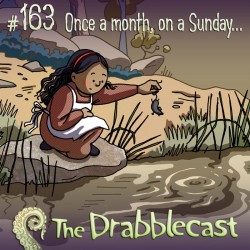 First appeared in Andromeda Spaceways.
First appeared in Andromeda Spaceways.Online
Audio
I could be wrong, but I think Ian McHugh's going places. His works have an uncommon potency and vibrancy. This one revisits aboriginal mythology--that of the bunyip. The family has a beloved friend, Baba, who advises them and appears to be a Muslim of his own branding, including wards and other spells to help protect the family. The young narrator offers mice to the bunyip in exchange for a pale of water. But happens if the lid is loose and the mice escape?
The melancholy low-horror tale seems to suggest that sadly Baba doesn't know everything he needs to know.
Trent Zelazny donating 50% of proceeds to shelter
Trent Zelazny is donating 50% of proceeds of his ebook, People Person, to Esperanza, a local shelter for the battered.
--Lisa Tuttle, Writing Fantasy and Science Fiction"...the names of all important settlements and major geogarphical features, you'll still have to bring it to life on the page."
Note: A solid book on the field. The unique strength or value of this book is its analyses. Her advice is familiar but when she breaks down her work or those of others, you'll want to listen.
Tuesday, October 15, 2013
Jeff Vandermeer on description
Book trailer
Website
Book --out today, Oct 15. Excerpt:
Website
Book --out today, Oct 15. Excerpt:
"Do not discount the power of objects... in narrative.... Things symbolize.... [T]hey can bolster... characterization.... Why not make that description do more than one thing?"--Jeff Vandermeer
Science Fiction and Mundane SF
--Lou Anders on Elizabeth Bear on SF, from Writers Workshop of Science Fiction & Fantasy, edited by Michael Knost"Elizabeth Bear proclaimed that [science fiction] was the literature of testing ideas to the breaking point."
Notes:
Kudos to Elizabeth Bear. That's about the coolest definition I've read.

Lou Anders treats Mundane SF as a subgenre, mentioning Julian Todd and Geoff Ryman, which is cool, but didn't mention my contribution, which allowed for Anders' explanation of MSF differing from hard SF. Thanks to Ted Chiang and other critics--in and out of the group--I milled for years, chiseling out a solid ethos to ground Geoff's manifesto. Should it matter? Probably not. As Kurt Vonnegut said, "So it goes."
Since I'm on the topic of Mundane SF, my contribution to the subgenre in terms of story--workshopped with Gene Wolfe ye these many eons ago--is forthcoming in Eric Reynolds' Global Warming Aftermaths. Bruce Boston, Steve Ramey, Sue Linville, and Julian Todd critiqued it as well--probably others I'm forgetting.
Wiki: Mundane SF:
Trust the manifesto, not the description. We originally intended it to be projected into the far future as well as solar system developments (although a few only wanted it on Earth--you can't get everyone to agree on everything). Future technologies were acceptable as long as it adhered to today's science. Moreover, it was after Clarion that we discussed this, spurred by my idea for the need of experimental SF, and Julian Todd's idea that we don't explore oceans much in SF.
Mundane SF blog :
We edited an issue of Interzone and Geoff did his own anthology as well, When It Changed. It's critique was that it was too science-y science fiction, but that sounds pretty cool to a science major/teacher.The blog is largely inactive these days. I had to stop posting when I started teaching, learning on the job. It appears I'd done about 80% of the posts up until that time. Since then, they averaged a post a month. We also had an explanatory website (now Chinese) that got sucked into the internet's black hole of oblivion. I may have access to rough drafts of the original posts if I dig around. UPDATE: Found some old posts from our original group, but Yahoo is a pain in the butt. Maybe I'll access them later when Yahoo irons this out. Leave a note if interested to remind me.
Lisa Tuttle on Symbolism and Setting
--Lisa Tuttle, Writing Fantasy and Science Fiction"Symbolism can easily be read into landscape features--dark woods, the endless sea, a wasteland, a path."
Note: A solid book on the field. The unique strength or value of this book is its analyses. Her advice is familiar but when she breaks down her work or those of others, you'll want to listen.
Monday, October 14, 2013
Jeff Vandermeer on Living the Creative Life
Book trailer
Website
Book --out Oct 15. Excerpt:
Website
Book --out Oct 15. Excerpt:
"As much as possible, allow yourself to be a raw nerve end that internalizes whatever is experienced in life.... one potent source of your potent creativity."--Jeff Vandermeer
Eugie Foster battling cancer
Eugie Foster is waging battle against cancer [her posts on coping with cancer]. You can help. She needs funds. She asks that you purchase her collections:


and/or
Sunday, October 13, 2013
Book trailer
Website
Book --out Oct 15. Excerpt:
Website
Book --out Oct 15. Excerpt:
"I have a system of not taking the easy way out: Not writing a book that bores me--not for an instant!; above all: Writing a book I want to read! Taking the path that has not been taken, seeing each book as a riddle to be solve. A RIDDLE and a REVELATION!"--Rikki Ducornet
Lisa Tuttle on convincing details
--Lisa Tuttle, Writing Fantasy and Science Fiction"There's no need to explain how everything works if you provide enough convincing details."
Note: A solid book on the field. The unique strength or value of this book is its analyses. Her advice is familiar but when she breaks down her work or those of others, you'll want to listen.
Saturday, October 12, 2013
Wonderbook: Jeff Vandermeer on Creativity
Book trailer
Website
Book --out Oct 15. Excerpt:
Website
Book --out Oct 15. Excerpt:
"Creative play and the imagination are at the core of a writer's life."--Jeff Vandermeer
Lisa Tuttle on Reinventing the Wheel
--Lisa Tuttle, Writing Fantasy and Science Fiction"Don't try making up facts for things for which there's already a solid working theory."
Note: A solid book on the field. The unique strength or value of this book is its analyses. Her advice is familiar but when she breaks down her work or those of others, you'll want to listen.
Friday, October 11, 2013
"Requiem in D-minor (for prions, whale and burning bush)" by Ian McHugh
First appeared in Hub #24.
Online
Audio
A failed PhD candidate links whale songs to prions and these prions to aliens, trying to communicate--to someone or something other than humans, since humans die. An alien artifact is found on the moon and the candidate is called on to communicate with these aliens. Its shape is in the form of a burning bush, but its attempts to communicate kill humans. It is unconcerned with human affairs--in fact, it actively hampers them.
Clever use of multiple conceits. Well-written with a pleasant suspense. Albeit, the ending was familiar.
Online
Audio
A failed PhD candidate links whale songs to prions and these prions to aliens, trying to communicate--to someone or something other than humans, since humans die. An alien artifact is found on the moon and the candidate is called on to communicate with these aliens. Its shape is in the form of a burning bush, but its attempts to communicate kill humans. It is unconcerned with human affairs--in fact, it actively hampers them.
Clever use of multiple conceits. Well-written with a pleasant suspense. Albeit, the ending was familiar.
Lisa Tuttle on getting up to speed on research
--Lisa Tuttle, Writing Fantasy and Science Fiction"If you're starting from scratch in a particular field, you could do worse than read books written for children on the subject."
Note: A solid book on the field. The unique strength or value of this book is its analyses. Her advice is familiar but when she breaks down her work or those of others, you'll want to listen.
Free and Reduced ebook Lunches
Matthew Hughes, the writer often named as Jack Vance's inheritor:9 Tales of Henghis Hapthorn
FREE
A good tale with a very classic feel. Although I kind of like the cover--maybe two pumpkins are too much?--a website named it as one of the worst covers, but don't let that stop you from reading the story:The Witch Who Made Adjustments
by Vera Nazarian
FREE
Essays on writing crime:
various
$.99
Like oddities? Avram Davidson is your man.These are only $.99.
- The Phoenix and the Mirror: Book One of the Vergil Magus Series (Prologue Fantasy)
- Vergil in Averno: Book Two of the Vergil Magus Series (Prologue Fantasy)
- The Island Under the Earth (Prologue Science Fiction)
Edward M. LernerHard SF authorfrequent contributor to Analog First $.99, Others $2.99:
Thursday, October 10, 2013
Different Ways to Help the Bullied and the Friendless
Teaching overseas one learns that the American idea of not having a relationship with students is not universal. Going into this school, we teachers were told to take time with students, and it has enriched the teaching experience. American teachers often say they don't have to be friends with students, which is true, but a colleague describes the relationship as "mentor-mentee."
I am reluctant to prescribe what the teacher must do/be as every teacher has strengths and weaknesses, due to genetics and upbringing. Some teachers can have relationships of this type, and some may not. I'm not saying what teachers must do, but what they may be able to accomplish.
This student has been bullied. Normally, when you see information about bullying for teachers, it's how to stop it or how to help the students to stop it, which is good. My classroom rules don't allow students to run others or themselves down--often it's phrased that way (when possible) to show that this rule is there to protect them as well. But is there something else we can do?
Why not be a mentor to this student if possible? Look at how his eyes light up about video games. Surely, he has teachers that share such enthusiasm. Why not have a friendship with a teacher who asks him about videogames--favorites, the new ones coming out, the best game systems, etc.? He may not have friends his own age, but maybe that's just a phase. What's wrong with having a grown-up friend-mentor? I recall a teacher speaking of a student, saying, "His only friends are teachers." So what? At least he has friends. It may not require hours of investment, but a quick minute to connect. Inventory student interests. Find out what they like.
Perhaps you cannot connect with the student--for whatever reason--but you might still be able to help indirectly. I had a student who wasn't bullied, but he was largely ignored by classmates. I handed over responsibilities to him so that others had to seek him for aid. Slowly, he gained respect and was even honored in a way that may have been a highlight of his high school days. He had many pulling for him, so it was the work of many people, including himself.
How might one implement this on student who appears to have no talent? You can hand knowledge to that student first and him to distribute it among his classmates. Going to someone for help implies respect for that person's experience or knowledge. Moreover, you the teacher imply that this student is worthy of trust.
It won't work for everyone, but it may be worth a try. This try may weigh far more than any bullying intervention you attempt.
I am reluctant to prescribe what the teacher must do/be as every teacher has strengths and weaknesses, due to genetics and upbringing. Some teachers can have relationships of this type, and some may not. I'm not saying what teachers must do, but what they may be able to accomplish.
This student has been bullied. Normally, when you see information about bullying for teachers, it's how to stop it or how to help the students to stop it, which is good. My classroom rules don't allow students to run others or themselves down--often it's phrased that way (when possible) to show that this rule is there to protect them as well. But is there something else we can do?
Why not be a mentor to this student if possible? Look at how his eyes light up about video games. Surely, he has teachers that share such enthusiasm. Why not have a friendship with a teacher who asks him about videogames--favorites, the new ones coming out, the best game systems, etc.? He may not have friends his own age, but maybe that's just a phase. What's wrong with having a grown-up friend-mentor? I recall a teacher speaking of a student, saying, "His only friends are teachers." So what? At least he has friends. It may not require hours of investment, but a quick minute to connect. Inventory student interests. Find out what they like.
Perhaps you cannot connect with the student--for whatever reason--but you might still be able to help indirectly. I had a student who wasn't bullied, but he was largely ignored by classmates. I handed over responsibilities to him so that others had to seek him for aid. Slowly, he gained respect and was even honored in a way that may have been a highlight of his high school days. He had many pulling for him, so it was the work of many people, including himself.
How might one implement this on student who appears to have no talent? You can hand knowledge to that student first and him to distribute it among his classmates. Going to someone for help implies respect for that person's experience or knowledge. Moreover, you the teacher imply that this student is worthy of trust.
It won't work for everyone, but it may be worth a try. This try may weigh far more than any bullying intervention you attempt.
Lisa Tuttle on Consequences, Big and Small
--Lisa Tuttle, Writing Fantasy and Science Fiction"[E]vents have consequences.... [A]ctions ripple out and have an impact on everything else.... [C]onsider the whole ecology, not just isolated details."
Note: A solid book on the field. The unique strength or value of this book is its analyses. Her advice is familiar but when she breaks down her work or those of others, you'll want to listen.












